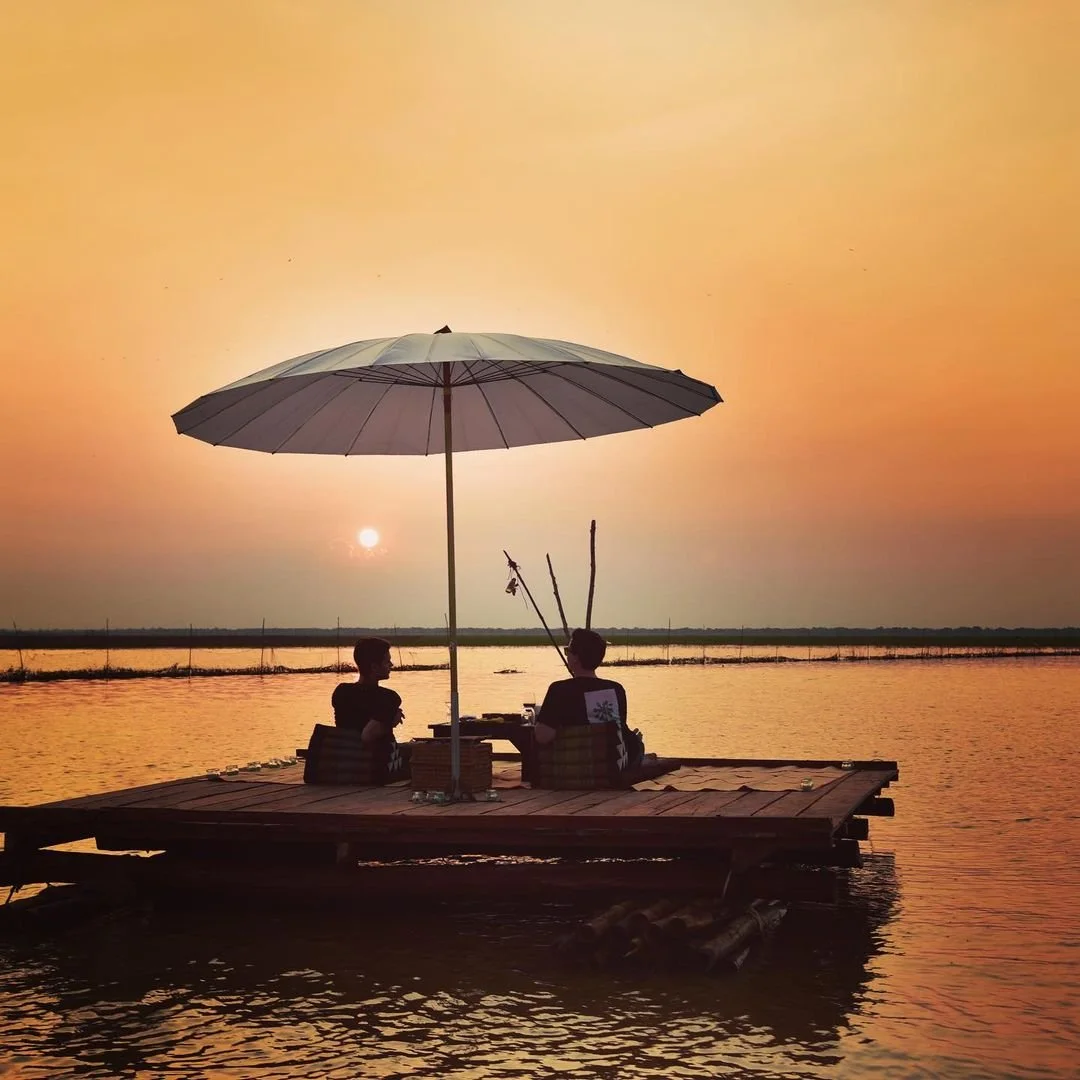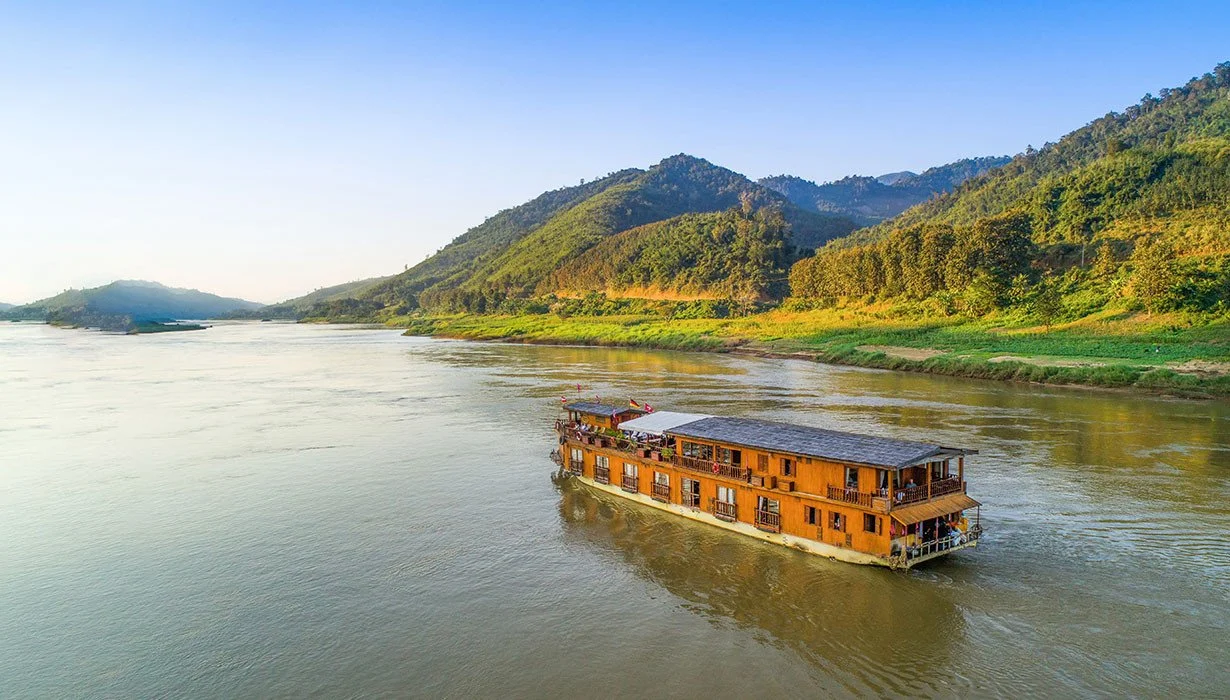Unlocking Sustainable Travel: Slow Down, Stay Long, and Tap into Asia’s Pivotal Role
As we navigate an era defined by climate consciousness and ethical responsibility, the imperative for sustainable travel has never been clearer.
In today's fast-paced world, the allure of instant gratification often overshadows the beauty of the present moment.
Slow travel, an antidote to this rush, invites us to savor the magic of a destination. It aligns perfectly with sustainability by encouraging immersive experiences over hurried checklists or bucket lists.
The pivotal role and concept of independently-owned, long-term rentals cannot be understated.
Longer sojourns foster meaningful connections with communities, reduce carbon footprints, and bolster local economies. Longer stays also alleviate the strain on overburdened tourist hotspots, breathing life into hidden treasures.
In this global shift toward sustainable travel, Asia must play a central role. Home to sixty percent of the world’s population, Asia is primed to lead the way. Its new generation of travelers and consumers, attuned to ethical choices, possess the power to reshape the industry.
Engaging Asia is not just desirable; it's imperative to achieve global sustainability goals.
In this interview with Marc Ribail, Founder of QALIA, for Sustainability in Focus, we explore how luxury vacation rental providers can integrate sustainability into their business by using the QALIA standards.
We also uncover which Asian destinations are most receptive to sustainable practices, guided by Marc’s nearly two decades of insights in Asia, on steering the travel sector toward a more sustainable and equitable future.
Mark Ribail is the Founder and CEO of QALIA, a pioneer in ethical and responsible tourism. QALIA collaborates with luxury vacation rentals, endorsing their ethical practices.
Prior to this, Mark was the Founder and CEO of Unique Retreats, offering bespoke consultancy for property owners and managers, helping them establish unique brands and distribution networks. He also served as the Director at APTENEX LIMITED, contributing to the growth of Rentivo, a holiday rental management, payment provider, and marketplace builder, particularly focusing on Asian markets.
Hello Marc, slow travel, prioritizing the present magic moment over ticking off tourist sites, leads travelers to seek a long-term rental to resemble how local residents lives and sees their country. This travel mindset has fueled the rise of Airbnb and VRBO. In your view, what are the most consequential impacts of this shift in the travel sector?
Thank you for having me here.
Slow travel, often referred to as staycation, reflects a growing preference for longer-term rentals offered by Airbnb, VRBO, and niche marketplaces in the past 2.5 years. This shift has three major impacts:
Sustainability: Slow travel is a more responsible tourism approach as it reduces the carbon footprint associated with frequent travel, fosters meaningful connections between visitors and locals, and supports local economies.
Diversification: Slow travel encourages tourism infrastructure development in lesser-known destinations, contributing to a more balanced and sustainable tourism industry.
Off-the-Beaten-Path: Longer stays lead travelers to explore non-touristy locations, relieving the strain on popular spots and benefiting local communities.
Photo by: Unsplash
Your career in hospitality and travel spans over 20 years, 18 of those in Asia. What is your assessment of the financial opportunity for the region’s luxury vacation rental providers to integrate sustainability into their businesses? By sustainability, we’re speaking of systematic changes in the way rental accommodations are built, guest experience is managed, community engagement and team management are conducted, and ecological well-being is prioritized.
This is an interesting question. With all the research we conducted when setting up QALIA, I can confidently say that Asia is a leading force in the development of sustainability practices, or “responsible tourism practices” as I prefer to call it, and that there is a tremendous business opportunity for luxury vacation rental providers in the region to integrate these practices into their businesses.
Asia stands out for its heightened sensitivity to environmental and social impact, rooted in a deep cultural reverence for nature and strong community bonds. Moreover, Asia is witnessing a surge in Ultra-High Net Worth (UHNW) millennials, a demographic that often values conscious consumption and sustainability more than previous generations.
This growing awareness of sustainability presents a golden opportunity for rental operators.
By adopting eco-friendly practices and engaging with local communities, they can cater to a broader, eco-conscious clientele, differentiating themselves within a competitive market. These experiences generate word-of-mouth recommendations and foster repeat business.
The beauty of these practices lies in their accessibility. They don't require significant capital investments but instead rely on a shift in habits and improved operational management. Operators can begin small, gradually expanding these initiatives, and share sustainability efforts through narratives to enhance guest understanding and appreciation.
While small-scale changes are crucial, larger initiatives like eco-friendly construction and waste reduction face resource challenges. However, there are positive developments, such as the cost reduction of solar power, making it a viable option in sun-rich regions.
In assisting operators with sustainability, we emphasize team management and education. Prioritizing these aspects enhances initiative implementation, resulting in improved employee satisfaction, motivation, loyalty, and ultimately, service quality and guest satisfaction.
Though financial gain isn't the primary objective, it often follows responsible choices. Luxury vacation rental providers embracing environmental and social responsibility build robust brand identities and attract travelers. who value sustainability. Cost savings within operations further bolster the appeal of responsible practices.
As responsible tourism becomes the norm, operators are realizing that integrating sustainability into core business models, despite initial costs, leads to long-term financial sustainability. This shift reflects the evolving travel landscape, where responsible choices align with both moral values and sound financial strategies for a brighter, more sustainable future.
“Asia stands out for its heightened sensitivity to environmental and social impact, rooted in a deep cultural reverence for nature and strong community bonds.
Moreover, Asia is witnessing a surge in Ultra-High Net Worth (UHNW) millennials, a demographic that often values conscious consumption and sustainability more than previous generations.”
Photo by: About Asia Travel
“By adopting eco-friendly practices and engaging with local communities, rental operators can cater to a broader, eco-conscious clientele, differentiating themselves within a competitive market. These experiences generate word-of-mouth recommendations and foster repeat business.
The beauty of these practices lies in their accessibility. They don't require significant capital investments but instead rely on a shift in habits and improved operational management.
Operators can begin small, gradually expanding these initiatives, and share sustainability efforts through narratives to enhance guest understanding and appreciation.”
Now let’s talk about your entrepreneurial journey. What was your primary motive for focusing on the luxury vacation rental sector, as opposed to the mass market vacation rental, to adapt to ‘the new climate economy’ when you founded QALIA?
When founding QALIA, my main goal was to leverage over two decades of experience in luxury vacation rentals to drive change in sustainable travel.
The luxury sector often leads in adopting innovative practices, and I believe luxury accommodations should follow suit.
Focusing on luxury vacation rentals allows QALIA to influence both property owners and travelers, helping them infuse their values into property development and travel choices respectively.
In alignment with the hotel industry, I firmly believe that integrating responsible tourism practices into luxury rentals can create a ripple effect throughout the sector, inspiring more sustainable practices across the travel landscape.
In essence, our focus on luxury vacation rentals empowers QALIA to champion sustainability in high-end travel, catalyzing a shift towards a more responsible future for all stakeholders.
The QALIA standards are based on the GSTC criteria. So are many other sustainable travel certification programs. What are the 3 most important differences that QALIA standards have from others?
Indeed, the QALIA framework is built upon the widely recognized Global Sustainable Tourism Council (GSTC) criteria, which are also used in many sustainable travel certification programs. While we share the common goal of promoting responsible tourism, there are three key differences that set QALIA standards apart:
First, QALIA is the sole standard tailored to luxury vacation rentals, with an emphasis on luxury villas. This specialization caters to the unique needs of the affluent and discerning travelers to provide them with meaningful and elevated experiences.
Second, we act as the accountability partner of our members during the implementation of the practices by providing them with support and resources. We assist them in recognizing the importance of community engagement, team management, and guest experiences in creating a sustainable and impactful stay.
Finally, we bridge properties to a broader audience through PR with luxury travel & lifestyle influencers and media outlets, and by connecting properties with villa rental specialist agencies. We believe in the paramount importance of sustainability and aim to demonstrate the leadership of our members.
What is QALIA’s member profile and how do they apply to work with you?
Above all else, we want the experience of working with us to be as human as possible.
Our journey begins with dedicated owners and operators committed to sustainability, infusing their values into their business. We seek like-minded luxury vacation rentals that share our vision for positive impacts on the environment, local communities, and guests.
Our streamlined application process assesses the property’s existing sustainability initiatives and readiness for QALIA standards. Through discussions with applicants, we pinpoint areas for improvement, ensuring alignment with our criteria and creating an implementation plan.
Members have access to valuable resources, networking opportunities, and expert guidance to enhance their sustainability journey. As part of the QALIA network, they champion responsible tourism, inspiring others in luxury villa rentals to follow suit.
Tapping into your wealth of knowledge about the APAC market, in your view, what benefits do the Asian luxury vacation rental providers need to see from holding a sustainability certification in order to attain one?
Implementing responsible tourism practices in the APAC region offers a variety of significant benefits. Just to name a few here:
Elevated Brand Reputation: Sustainable practices enhance a property's brand reputation, appealing to a growing number of conscious travelers in and beyond the APAC market. Millennial and Gen Z travelers, in particular, seek authentic and responsible experiences. QALIA's validation of a property's sustainability practices reinforces its credibility, attracting this lucrative market segment and fostering increased brand loyalty and word-of-mouth referrals.
Early Adoption of Sustainability Trends: The region is currently witnessing a surge in demand for sustainable and eco-conscious experiences, which are poised to become the industry norm. By embracing sustainability practices early on, Asian luxury vacation rental providers position themselves as industry leaders in responsible tourism.
Operational Efficiency and Cost Savings: Sustainable practices, including energy-efficient technologies, waste reduction, and water conservation, not only benefit the environment but also often result in cost savings and improved operational efficiency. These measures significantly contribute to members' financial sustainability.
Positive Impact on Local Communities: Responsible tourism, with its emphasis on social responsibility and inclusive destination management, fosters positive relationships and creates a meaningful impact on local communities, even at the grassroots level.
Asia is a big and diverse continent. In your opinion, luxury vacation rental providers of which countries and destinations would be most receptive to QALIA?
In my opinion, some Asian destinations seem to show stronger receptiveness and alignment with QALIA's vision.
Known for its breathtaking natural beauty and strong commitment to cultural conservation, Bali has been a pioneer in sustainable tourism practices. Many luxury properties on the island have already embraced eco-friendly initiatives, making it an ideal destination for QALIA's framework.
Thailand is another famous destination for luxury vacation rentals and the country’s cultural richness provides ample opportunity to implement responsible tourism practices.
While I may be less familiar with this destination, Japan's unique blend of traditional culture and modern luxury, exemplified in places like the ski resort of Niseko, creates captivating experiences for travelers. Sustainability practices can be leveraged to enhance the guest experience and contribute to the preservation of cultural heritage.
Finally, among my personal favorites, Sri Lanka boasts rich biodiversity, a steadfast promotion of responsible tourism, and a vibrant culture characterized by warm hospitality. It serves as an ideal example of the ethos of responsible tourism that QALIA promotes.
Last question for you Marc. The ASTB community loves actionable advice. Can you share the best business advice related to sustainability that you have been given?
Certainly! The best sustainability advice I've received emphasizes viewing it as an ongoing journey, not just a destination. It's not about a one-time checklist or marketing ploy; true commitment means consistently striving for improvement, even starting with small steps.
My GSTC course experience reinforced the idea that sustainability is a collaborative effort. To inspire others and create meaningful change, we must involve a wide range of stakeholders, including the local community, councils, travel agencies, and visitors. Sharing and collaboration with these partners are key to making sustainable practices a reality.
“It's not about a one-time checklist or marketing ploy; true commitment means consistently striving for improvement, even starting with small steps.
...To inspire others and create meaningful change, we must involve a wide range of stakeholders, including the local community, councils, travel agencies, and visitors.
Sharing and collaboration with these partners are key to making sustainable practices a reality.”
Photo by: Mekong River Cruises
Interested in reading more stories like above?
Subscribe below and be among the first to receive agenda-setting analysis and advice in your inbox.










